Description
What is a LW-Clock?
LW-Clock is a device, based on ESP8266 microcontroller and real-time clock DS3231. It uses indicator modules MAX7919 for information output. BME280 sensor provides a precise measurement of indoor temperature, humidity and barometric pressure. The device has a spare slots to connect other sensors via I2C and UART protocols. An Internet connection via Wi-Fi module helps to synchronize time with NTP servers, to get and display forecast, news, exchange rate etc. Data from sensors can be transmitted via MQTT protocol or displayed on popular monitoring service thingspeak.com.
Clock can display predetermined information (reminders, greetings, advertisements, time-schedules etc.) according on schedule. Display of text messages, transmitted from any place via MQTT is also possible.
Clock adjustment and manipulation is performed via WEB-interface. Micro-USB connector allows to use any low-duty USB-charger to power the device.
An Attractive Open Source Option
LW-Clock is an entirely open source project that combines open source hardware with free and open source software.
The free and open source software tools were used to design LW-Clock and its acrylic and plywood enclosure. Source code and schematics are available at GitHub.
Quick Setup & Modes of Operation
All clock management is carried out using a web browser. On first power-up, LW-Clock will serve a hotspot called LW-Clock. For clock adjustment and manipulation open a webpage with the address 192.168.4.1. Within this hotspot you can manually override the time and date, set text messages for display, set timecodes of messages output and update software.
For Wi-Fi network connection please input its SSID and password. After successful connection the watch will begin to receive and transmit information over the Internet. NTP servers are used to get accurate time. To get the current weather and forecast use the service openweathermap.org (you need to register and get an API key). To transmit temperature, humidity and barometric pressure data you can use the MQTT server www.cloudmqtt.com and the server thingspeak.com. Through the MQTT server, you can also transmit information for display on the clock in the form of a creeping line.
Fun For All with All Skill Levels
LW-Clock is fun and easy to use. Besides the fact that the clock is a stylish and useful add-on for your home, it allows you to get a lot of additional information, as well as perform remote indoor monitoring. You don’t need to be a tech whiz to use it. Everyone can assemble and power up a device without any special tools. An actual version of software is already installed. Whether you’re a newbie to programming or a skilled engineer, the LW-Clock will always be useful at home or in the office. It can be an easy platform for smart-home, convenient for everyone interested in Internet of Things, coding, and open source.
Learning embedded software development by saving you the hassle of breadboards and jumper cables!
Features
- Always precise time because of synchronization with NTP time servers
- High display brightness
- Indoor temperature, humidity and barometric pressure measurement
- Getting temperature, humidity and barometric pressure data at any place via Internet
- Sending temperature, humidity and barometric pressure data to MQTT and Thingspeak.com server
- Getting a weather information and forecast for your city (temperature, barometric pressure, humidity, cloud and wind structure)
- Output of any predetermined information in the form of a creeping line
- Remote transmission of any text messages via MQTT server and it’s output on the clock
- No buttons – control the clock via WEB-interface from PC, tablet or smartphone
- Brightness and speed of output adjustment
- Two alarm clocks
- An option to install different alternative Open Source firmware, designed to MAX7912 matrix control
- Firmware update via Wi-Fi
- Information display on 3 languages: English, Russian, Bulgarian
- Two types of case material: acryl and wood
- Powered via USB
- Normal USB port or phone charger
- Hackable: Open source hardware and firmware, Displays information read via UART
Specifications
- CPU: Tensilica L106 32-bit processor (ESP8266)
- Connectivity: WiFi 802.11 b/g/n
- Peripherals: Matrix led x4 MAX7912 display, BME280 sensor (temperature, humidity and Barometric pressure), UART pins, button, three slots for I2C sensors, buzzer, sensor button
- Compatibility: Arduino IDE, PlatformIO, MQTT, and any modern web browser
- Upgradable: The software can be upgraded, either using an USB to UART module and over-the-air (OTA)
- Dimensions: 128 mm x 32 mm
- Open source Software and Hardware code: https://github.com/Lightwell-bg/LWClock
MQTT / Thingspeak
Clock can provide your home or office remote monitoring. The device can transmit the data from embedded sensors via MQTT or HTTP protocols. You can receive this data on your smartphone and PC MQTT-clients. Also this data can be transmitted to the popular monitoring service thingspeak.com for graphical format output.
MQTT-client can be used to transmit text data to the clock for immediate display in the form of a creeping line.
Designed for Hackability
While LW-Clock is a great clock, we’ve also made it easy and fun to hack on. To the extent possible, everything is open source, and the latest files can be found in the project repository. Also you can use different alternative Open Source firmware, available on GetHub and other websites.
Easily Programmable ESP8266
The control center of the device is the beloved ESP8266. It coordinates the Wi-Fi, display (via SPI), real-time clock (via I2C), tap sensor and buzzer (via digital input) to make everything run smoothly. Arbitrary code can be uploaded from your choice of development environment using the same micro USB cable that supplies power.
Power Supply
Special care was taken to ensure that the unit runs from 5 V from a standard USB port. If you connect to PC via USB port, you will see diagnostic messages, which comes by UART interface.
NOTE!!! If you use more than 4 modules you must connect an external power supply with a capacity of 330 mA per each 8×8 module!
Schematic Clock-MAX7219-ESP8266_v1.0
Two types of case material
We designed two types of the clock case, both you can choose to give a device a complete and stylish look.
First «modern» variant is made of black polished acryl, which fits perfectly into modern apartment or office design.
Second «warm» variant is made of woodworking industry waste and comes as a retro-style. Different colors and finishes can give a device a unique look which fits into any design of the apartment or office.
You can order both assembling clock kit and finished case, ready for coloring or other treatment.
Enclosure 3D Model:
- Acryl https://a360.co/2HCSG9u
- Plywood https://a360.co/33tJY6v
What Comes In A Kit?
| Starter Kit | Advanced Kit | Developer Kit | |
| PCB with soldered real-time clock DS3231 and a set of elements for installation (resistors, capacitors, diodes, connectors, active buzzer) | Yes | No | No |
| PCB with soldered all elements and connectors for connecting the indicator and sensors | No | Yes | Yes |
| Dot Matrix Module MAX7219 4/1 | Yes | Yes | Yes |
| ESP8266 Wemos D1 Mini | No | No | No |
| BME280 Digital Sensor (Temperature, Humidity, Barometric Pressure) 5V | No | No | Yes |
| TTP223B digital touch capacitive sensor | No | No | Yes |
| Micro USB Cable | No | No | Yes |
| Starter Kit |  |
| Advanced Kit |  |
| Developer Kit |  |

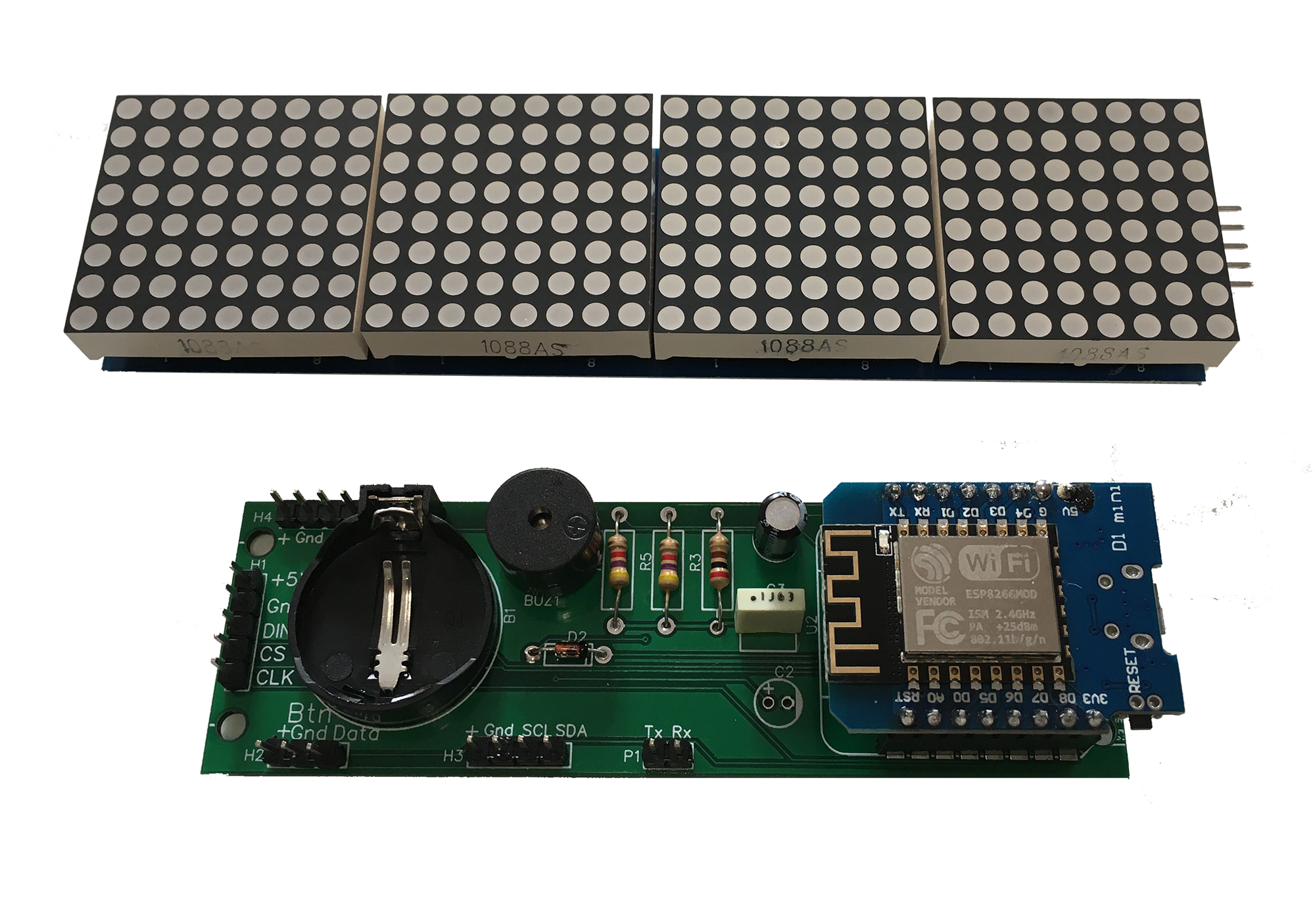
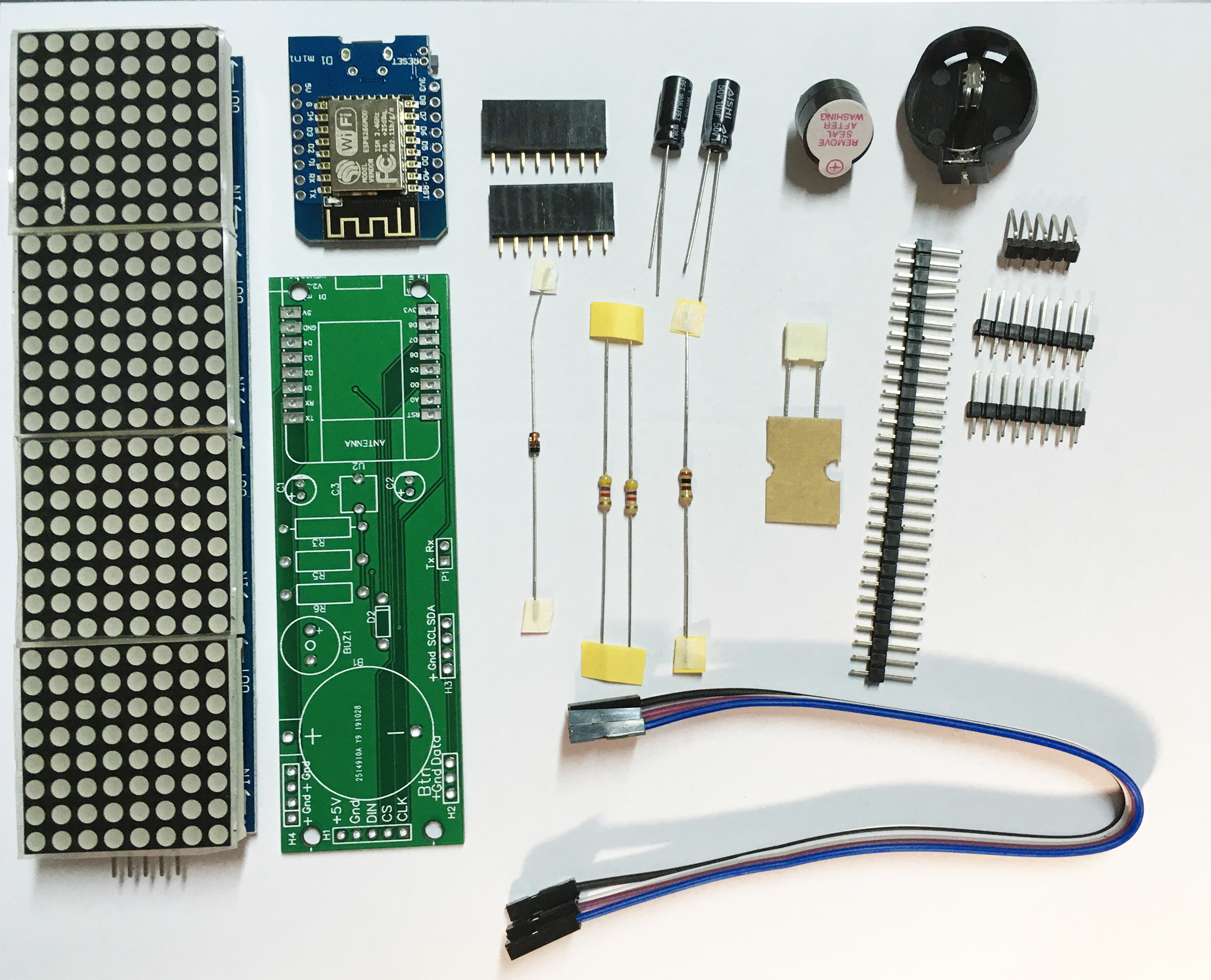

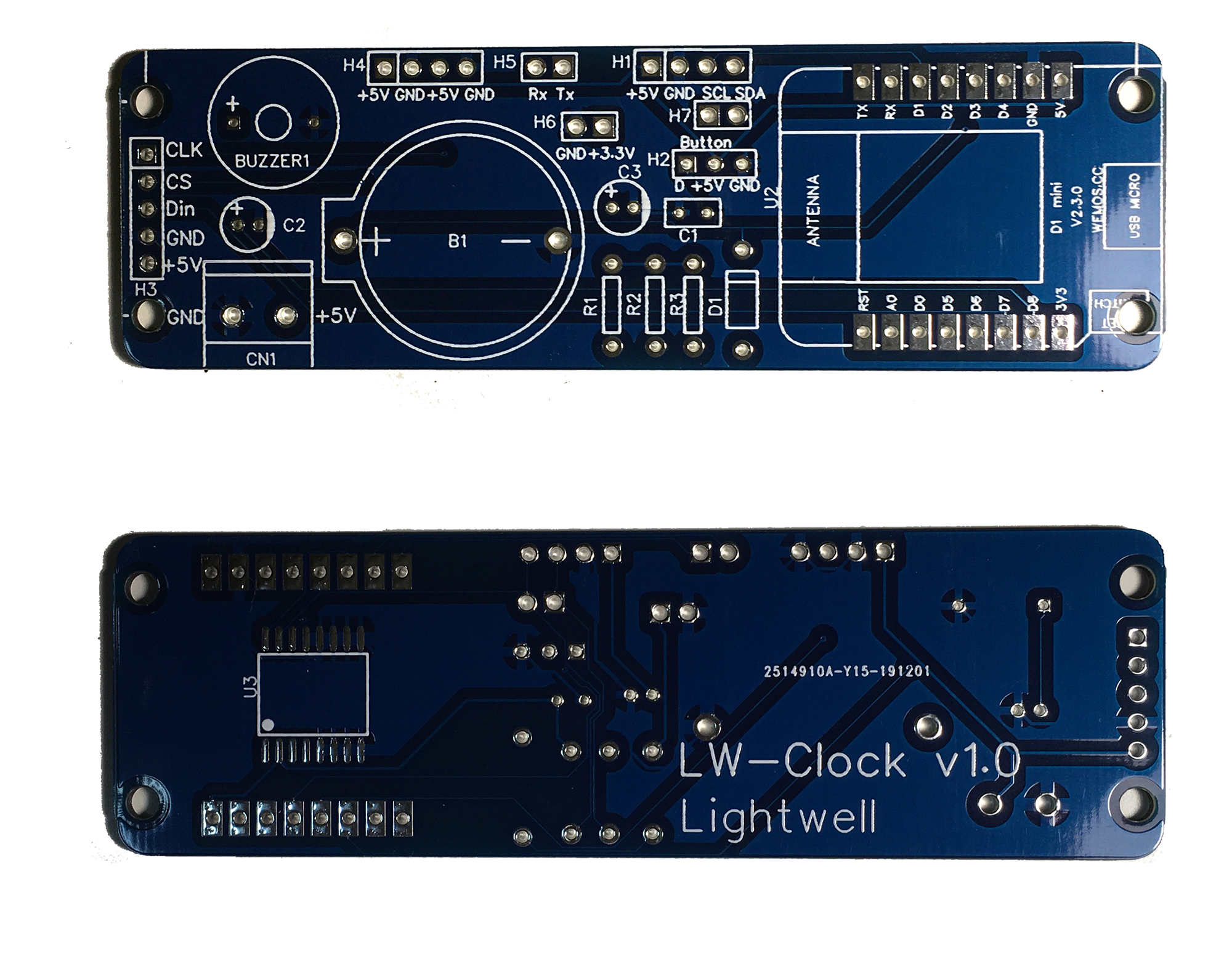
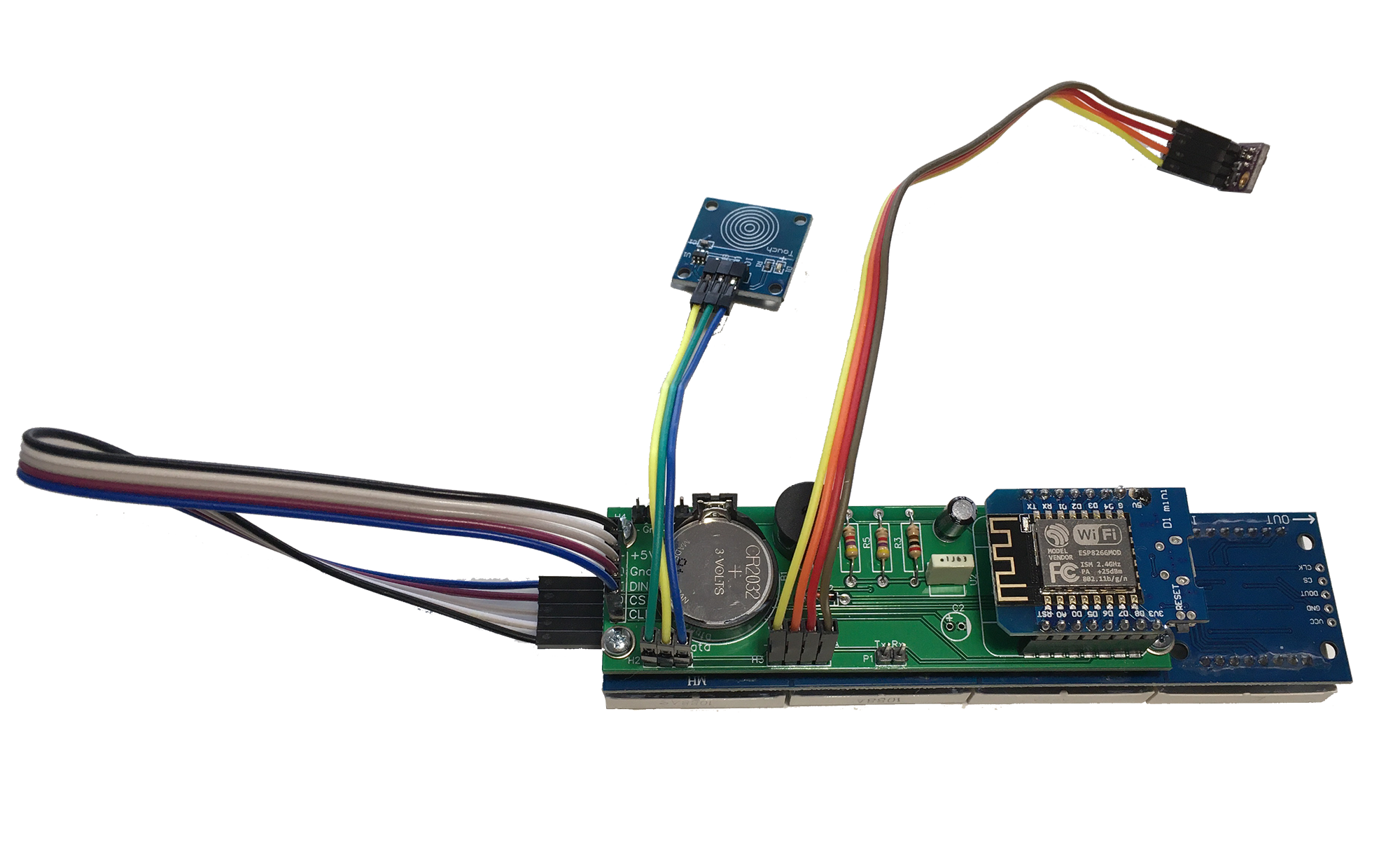
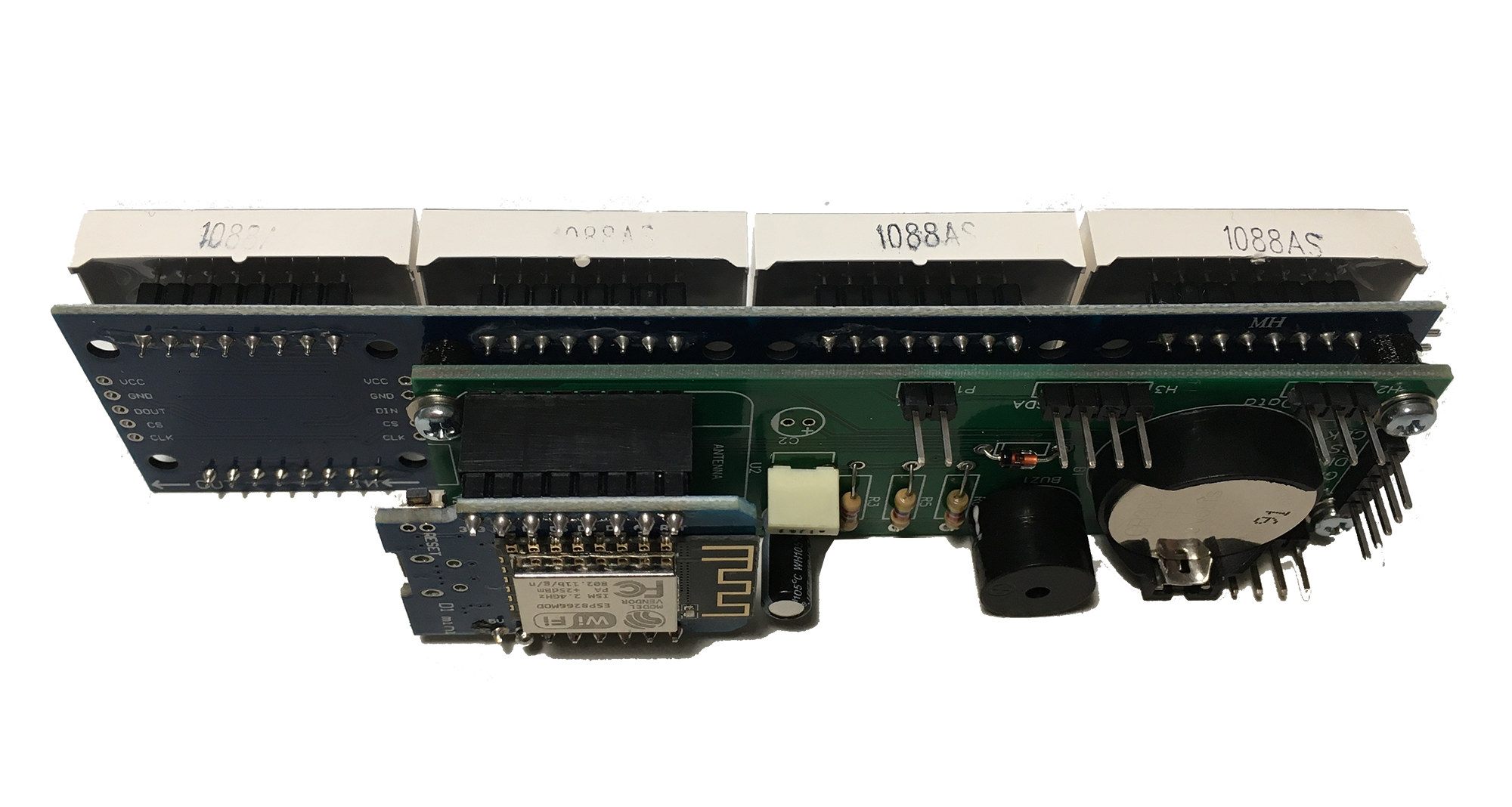
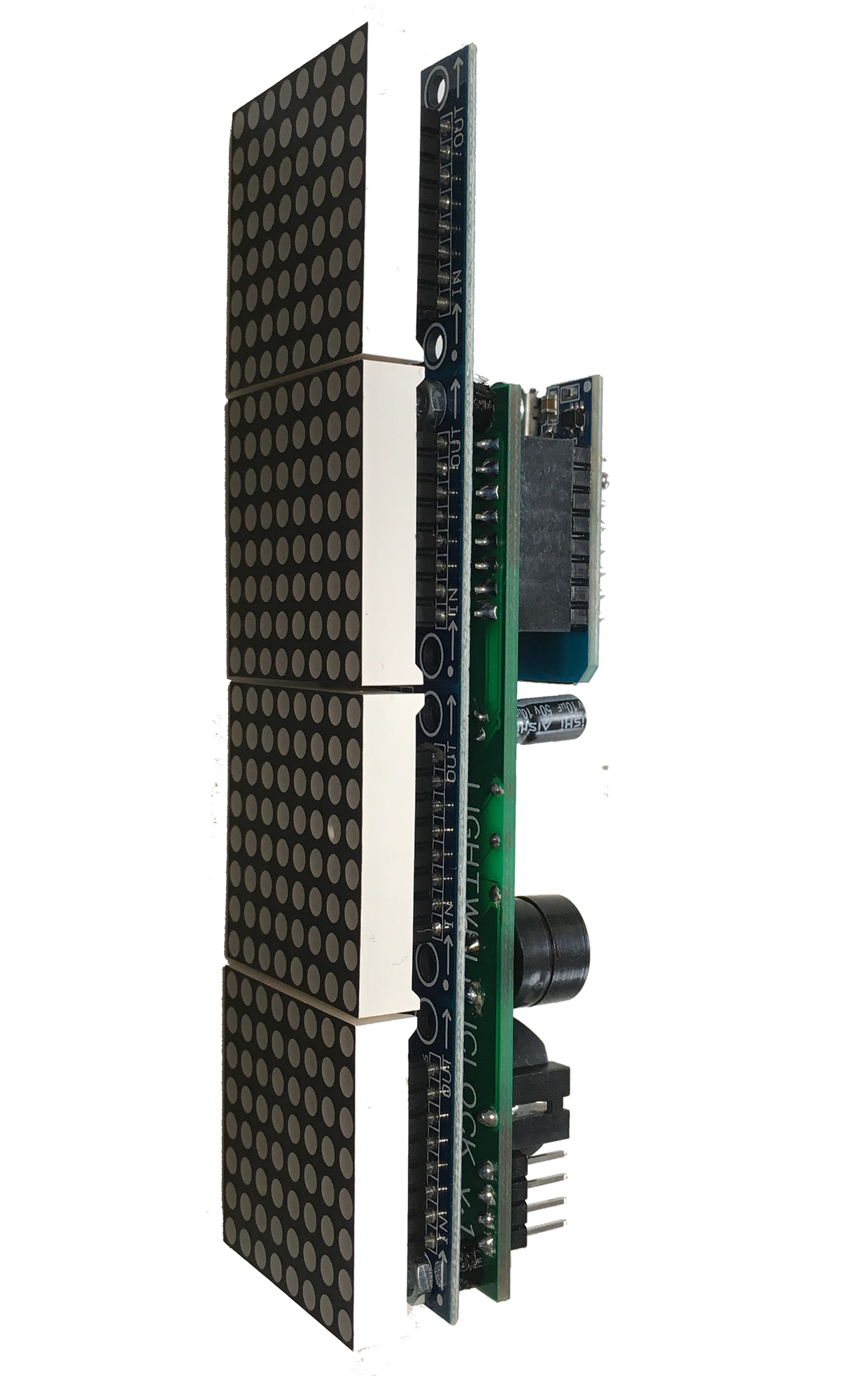
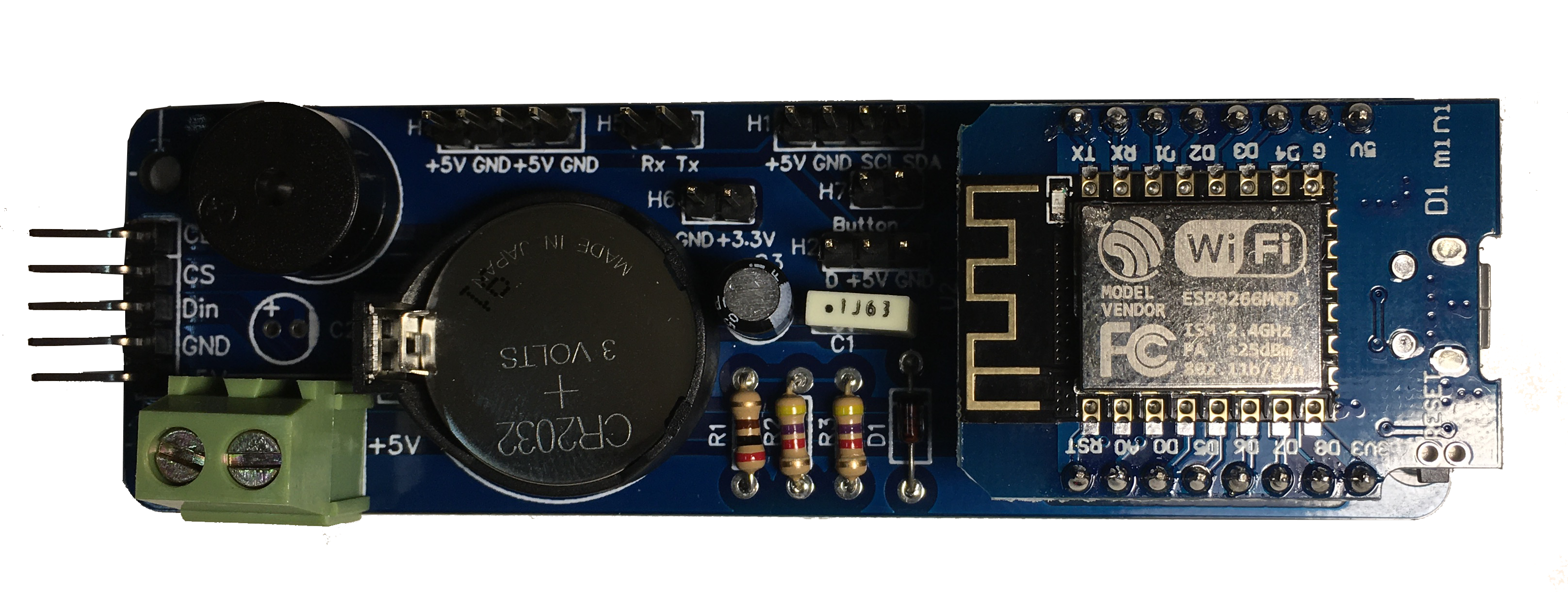
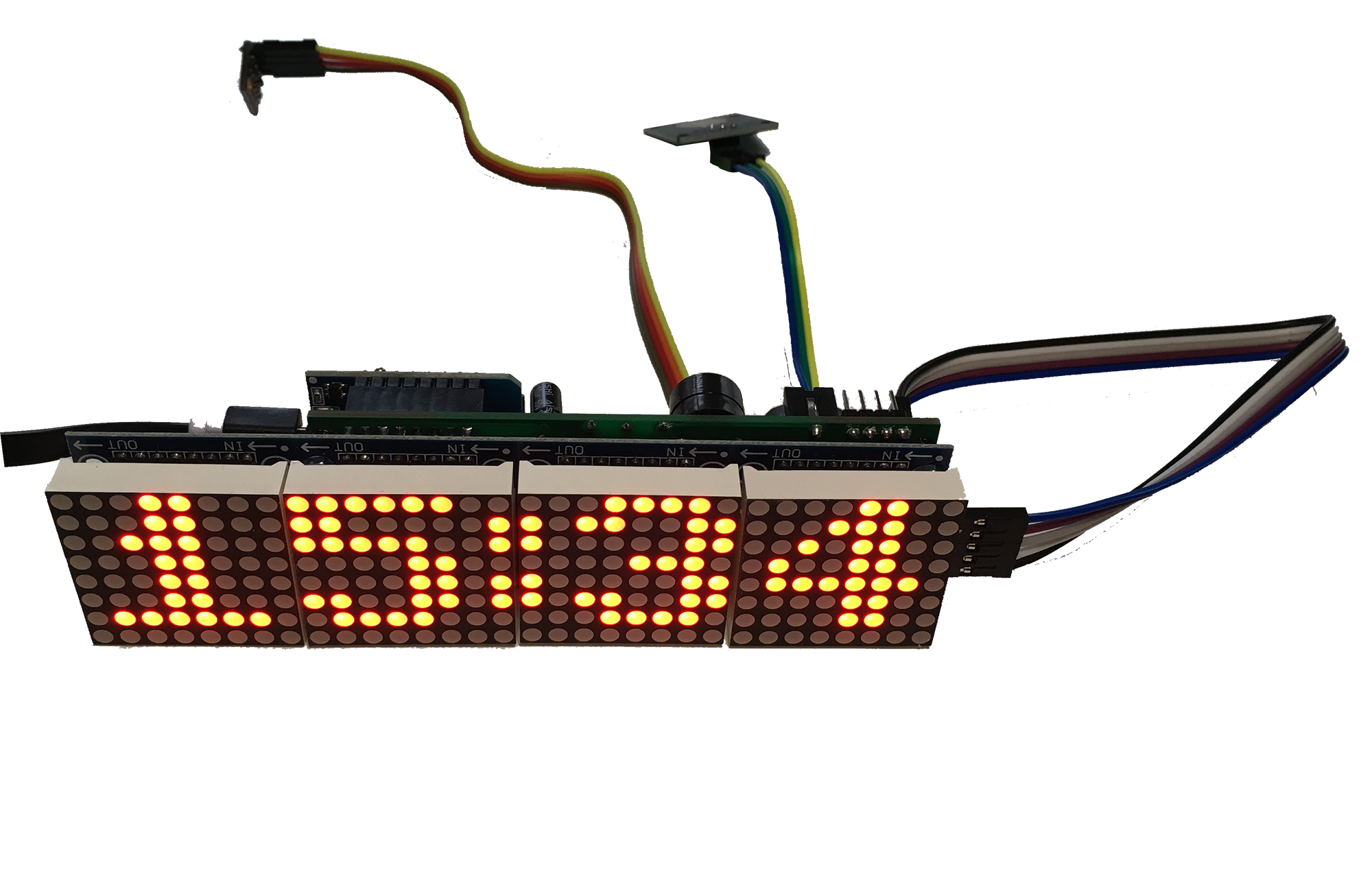
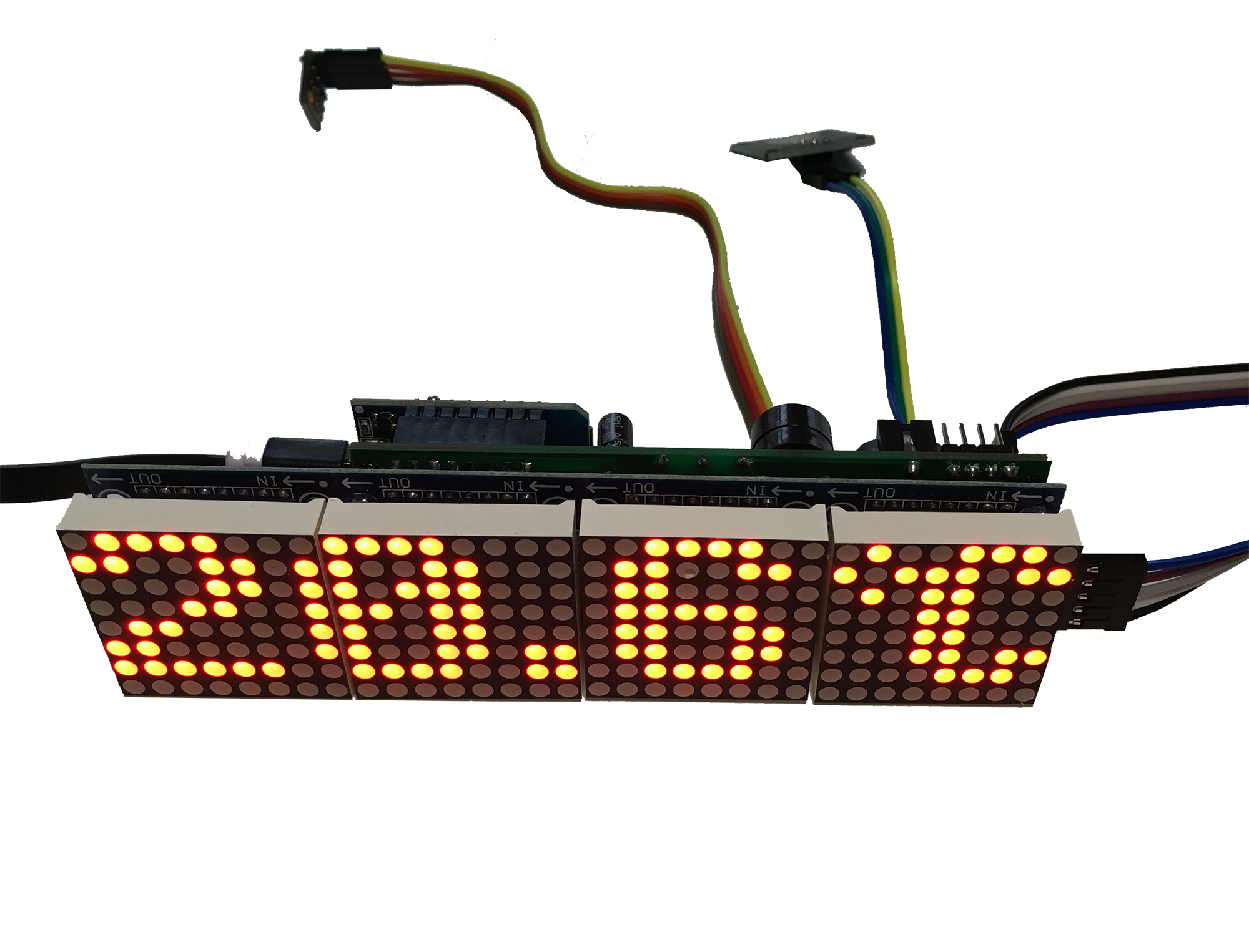

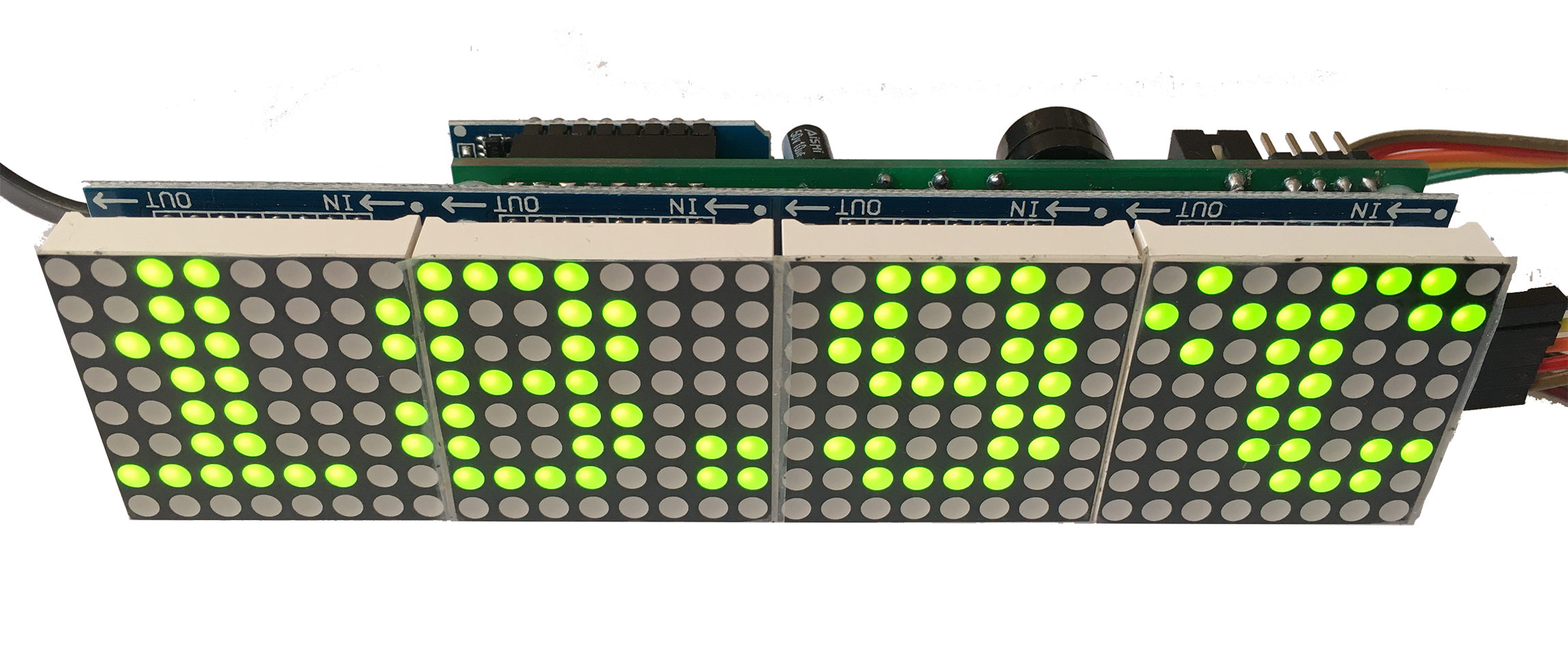

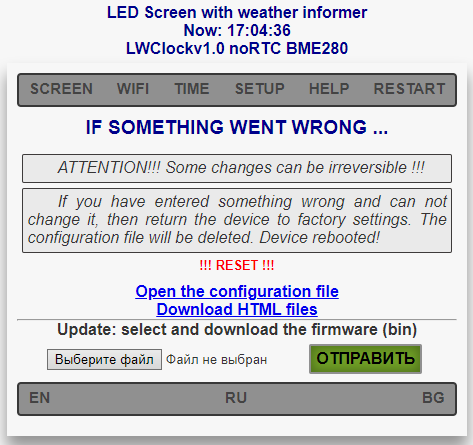

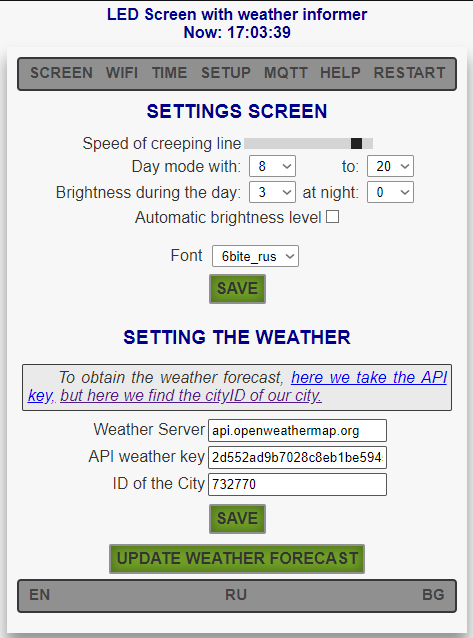















Reviews
There are no reviews yet.